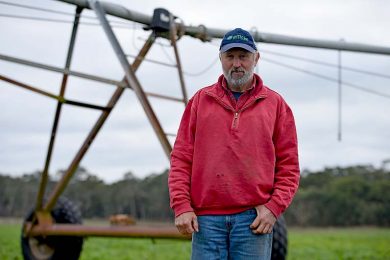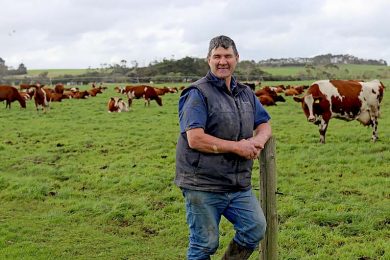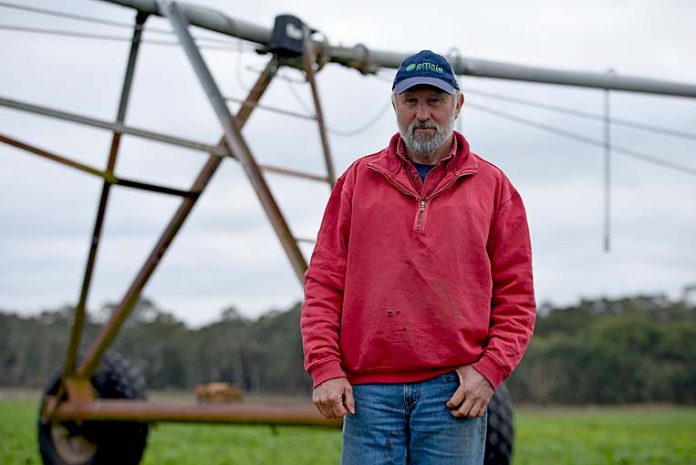
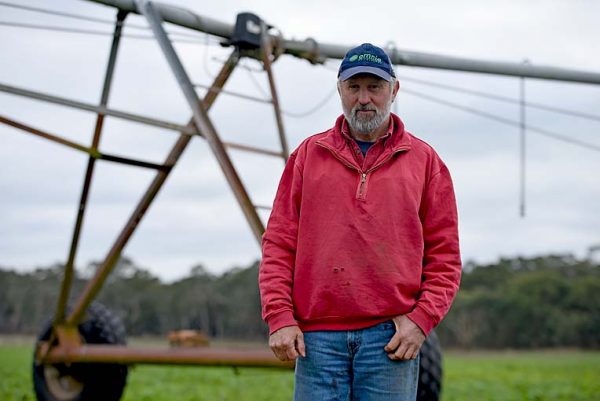
Picture: CHARLOTTE VARCOE
PRIMARY producers reliant on irrigation have warned against any changes to the region’s water licensing framework amid fears it could impact on aquifer levels and other sectors.
This follows the region’s forestry industry questioning the credibility of science into tree water use amid claims forestry water licences were restricting plantation expansion.
But regional dairy industry leader Graeme Hamilton yesterday called for the status quo to remain in a bid to protect all sectors reliant on the water resource.
The multi-million dollar regional dairy industry, potato sector and Coonawarra vignerons are standing steadfast against any changes to water regulations.
The introduction of forestry into the region’s water allocation budget in 2011 was considered a watershed agreement following 10 years of tense negotiations between the sectors.
Mr Hamilton said the outcome was a “negotiated settlement” between all parties and one sector should not receive a “free kick”.
It is understood the forestry sector accounts for about 30pc of the region’s water allocation budget.
South Australian Dairyfarmers’ Association Lower South East water spokesperson Graham Hamilton said the agreed regulations had resulted in the region’s water levels generally becoming stable, which meant the current framework was effective.
“The water system is in balance,” Mr Hamilton told The Border Watch yesterday.
In fact, he revealed water tables in the world renowned Coonawarra region were “showing good signs of recovery”.
“We have the settings in place and you cannot dramatically change that,” Mr Hamilton warned.
The OB Flat producer said the region’s “finite” water resource must be shared between residential areas, irrigators and forestry.
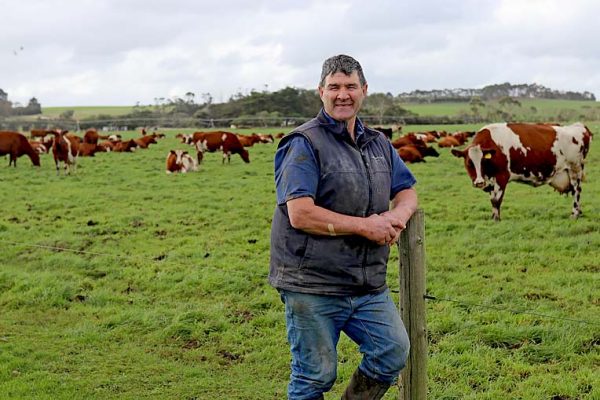
“We need to all be on an even footing,” said Mr Hamilton, who revealed there were at times a shortage of milk in Australia to meet domestic and export demands.
He expressed his “disappointment” the forestry sector now wanted to “change the rules”.
Mr Hamilton said the regional dairy industry would like to expand milk production and attract a new processing factory, similar to the potato sector, but it must operate within current water regulations.
The primary producer said the forestry sector had tapped into superannuation funds to fuel expansion and questioned claims large sections of plantations were not being replanted in traditional radiata pine areas.
“If we want to expand, we have to stump up the money to purchase the assets needed,” Mr Hamilton added.
Mingbool potato grower and industry leader Terry Buckley also called for the water regulations to remain unchanged.
“The forestry industry claims it should not have a water licence and that it is restricting their expansion, but it is the same for everyone,” Mr Buckley said.
“The main thing to remember – which a lot of people seem to forget when talking about water allocation around here – is they think there is just a bucket of water underground which you have in most other places around the world, but it actually opens out to sea.”
The prominent regional grower warned the water resource must be managed sustainably by all sectors.
“Forestry has been difficult all the way along, now they want to expand the industry but so does everyone else,” he said.
Mr Buckley said every other industry faced similar problems to forestry.
“We always need more research, but they should run it by all the water users to make sure everyone is happy with the process they are about to take on so that everyone is happy about the results,” he said.
“For them to have more water somebody has to have less. There is none spare.”
Mr Buckley argued water must be left for the next generation of primary producers.
“We cannot just wreck it at our will. We just need to live with what we do and accept our limitations,” he said.
“One of the appealing things about the South East is the diversity of industry – we do not want to end up all forestry. As a farmer I have had to knock back opportunities due to water restrictions.”


